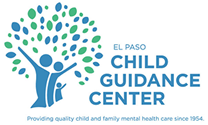Evaluation and Diagnosis is performed at the beginning of therapy using a biopsychosocial evaluation. The biopsychosocial assessment includes, but is not limited to the child/family history, family and individual strengths, sleep and eating patterns, medical issues, an analysis of family issues and dynamics, major conflicts, and identification of problems leading to the client seeking services.
Individual therapy addresses the intra-personal needs of the client to improve individual functioning. Individual therapy emphasizes personal growth and empowerment.
Family therapy addresses the client’s interpersonal needs within the family. The focus is on identifying and clarifying roles, reorganizing family structure and introducing new interactions. Parents are required to participate in their child’s counseling services.
Psychiatric evaluations and medication monitoring are part of the comprehensive plan of treatment with psychotherapy when the family requests and the therapist recommends this level of service. The child psychiatrist, a physician licensed to practice medicine, performs psychiatric evaluations and medication monitoring services. As a physician, the child psychiatrist is trained to understand the body’s physical functions and the complex relationship between emotional illness and other medical illnesses. The psychiatrist sometimes prescribes medication. Just like a diabetic patient who needs insulin or a heart patient nitroglycerin, a patient suffering from a mental health problem may need psychiatric medication.
Group therapy is designed to help clients identify problems and provide support in developing solutions that will enhance their lives. Group therapy is very effective for addressing special problems impacting several persons and, it can be an economical way for serving a larger number of people all at one time.
- Rollercoaster group: A family life education and strengthening program for children of divorce or change. These groups are designed for children ages five to thirteen whose parents or guardians have divorced, are divorcing, and/or have separated. The group is a didactic support group in which children’s loss is acknowledged. They are taught the changes in their lives are not their fault. These groups are offered in English and Spanish, are short term, and are offered at different times throughout the year.
- Support and educational group for females that are children or adolescents who are survivors of sexual abuse: A closed, short term group that is offered throughout the year. The group is a didactic support group where members learn facts about sexual abuse to reduce stigma, learn safety skills to prevent further abuse, and learn coping skills to deal with feelings. These groups are for females ages 5-17 and are offered at both clinics.
- Support and educational group for parents whose children have been sexually abused: A closed, short term group offered throughout the year. This group is educational and addresses facts about child sexual abuse, prevention strategies, and coping skills. These groups are offered at both clinics.
- Psychoeducation and support group for parents whose children have chronic illness and are staying at the Ronald McDonald House. An open, short term group that is offered once in the fall for residents and is conducted in English and in Spanish. Parents acknowledge different illnesses that their children face and discuss strategies for support and further understanding. This group is currently only offered at the Ronald McDonald House.
Therapeutic TechniquesTherapists at the Center employ various therapeutic and educational interventions. These include client-centered, family systems, cognitive-behavioral therapies, reality therapy, therapy using play and art, and others. Therapists use only the interventions that are within their areas of competency. The therapeutic technique used is a match of the training and expertise of the therapist and the developmental and emotional needs of the client or family. Interventions are flexibly applied and adapted to the socio-cultural uniqueness of each person served.
Prohibited InterventionsUnder no circumstance does the Center use or recommend punishment or discipline of clients. The Center does not use corporal punishment, aversive stimuli such as electric shock, interventions that involve withholding nutrition or hydration, or which inflict physical or psychological pain, forced physical exercise to eliminate behaviors, punitive work assignments, punishment by peers, or group punishment or discipline for individual behavior.
Discontinuation of InterventionsThe Center discontinues use of any intervention if it: produces adverse side effects, such as illness, severe emotional, or physical stress, or physical damage; is deemed unacceptable according to prevailing community standards; or is ineffectual or detrimental to meeting service goals and objectives.
